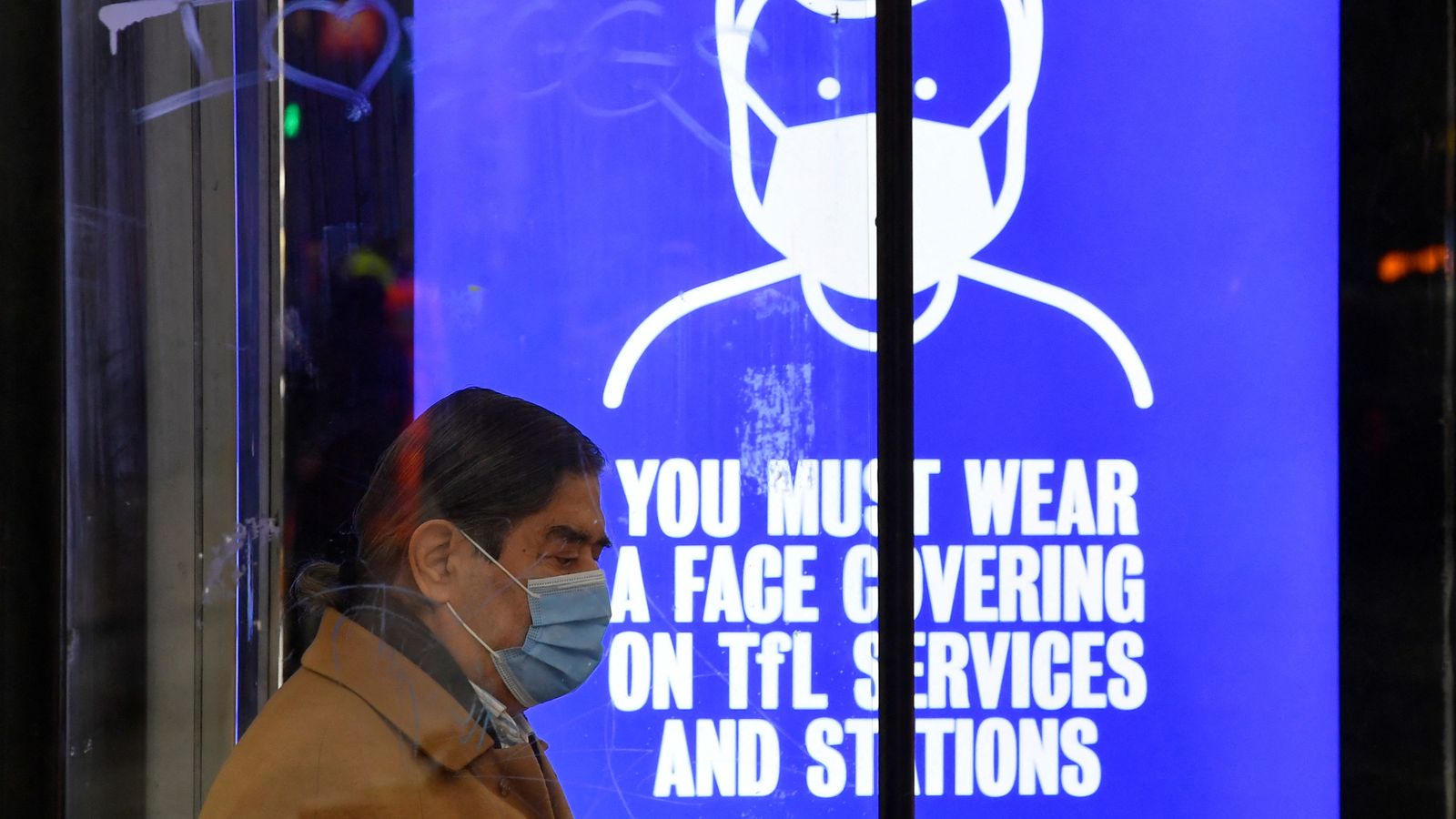The UK has reported 54,095 new cases of COVID-19 on Sunday, as well as a further 75 deaths within 28 days of a positive test, according to the latest government figures.
It follows 60,578 new cases and a further 259 deaths reported on Saturday, and 69,007 new cases and 91 deaths reported last Sunday.
In total more than 17.7 million people in the UK have tested positive for COVID-19, and more than 158,000 people have died within 28 days of a positive test.
Please use Chrome browser for a more accessible video player
The most recent data says that as of Thursday 3 February, there have been more than 452 million virus tests conducted in the UK.
As of the same date there are 14,634 patients in hospital with COVID-19, 478 of whom are in ventilation beds.
As of Saturday there have been more than 138 million vaccinations given in total, including more than 52 million first doses, 48 million second doses, and 37 million booster or third doses.
It comes as a director of the World Health Organisation (WHO) said Europe is entering the “plausible endgame” of the coronavirus pandemic.
Canada truckers: US groups need to stop interfering in COVID protests, former ambassador Bruce Heyman says
COVID-19: Cambridge professor admits he was ‘over-optimistic’ at the start of the coronavirus pandemic
COVID-19: UK reports 60,578 new cases of coronavirus and further 259 deaths
Dr Hans Kluge, WHO regional director for Europe, said the region had recorded 12 million new COVID-19 cases in the last week, with 30% of all cases since the pandemic began being reported this year.
But, he said, “for now, the number of deaths across the region is starting to plateau”.
Professor Sir David Spiegelhalter, chairman of the Winton Centre for Risk of Evidence Communication at Cambridge University has confessed he didn’t take the virus “seriously enough” at the start of the pandemic.
He added that he had a naturally optimistic personality “and that’s why I’m very glad I’m not a government adviser”.
“The pandemic has been a net lifesaver for younger people, if you look at people between 15 and 30 in 2020, 300 fewer died than would normally have died and that includes the 100 that died from COVID sadly,” Sir David said.
“So that’s 300 fewer families mourning the death of a young person because of the pandemic.
“Now that’s because young people were essentially locked up, they couldn’t go out driving fast, they couldn’t go out and get drunk, and they couldn’t get into fights and whatever, and so all these lives were saved.”
However, the professor said that this doesn’t necessarily mean he advocates for lockdowns, because “on the flip side of that you have a big increase in mental health problems”.






















